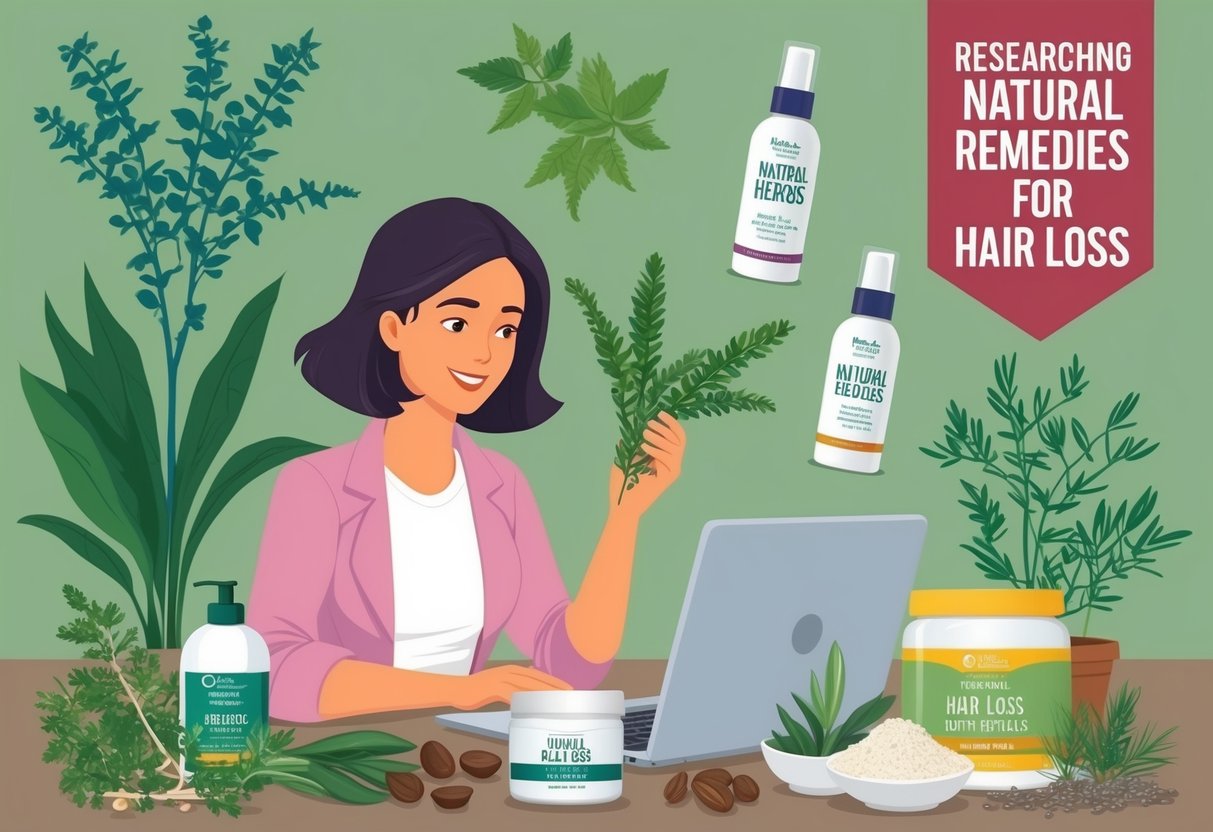How to Prevent Hair Loss Naturally: Tips, Remedies, and Products That Work
When to Consult a Healthcare Professional

Not all hair loss can be managed with home remedies or lifestyle changes. Severe thinning hair, unexplained shedding, or patterns of balding may require personalized medical treatment for proper diagnosis and management.
Recognizing Signs of Severe Hair Loss
Hair loss can occur for many reasons, from genetics and stress to medical conditions such as alopecia or thyroid disease. If a person notices sudden, patchy, or rapid thinning—or if hair loss is accompanied by symptoms like itching, burning, or redness—it can indicate an underlying health issue.
Certain signs suggest the need for medical advice:
- Sudden hair shedding, especially in large clumps.
- Bald patches developing on the scalp or other areas.
- Hair loss that results in noticeable thinning all over the head.
- Accompanying symptoms, such as persistent scalp discomfort.
Seeking early evaluation is especially important if a family history of alopecia areata or autoimmune disorders exists. Dermatologists are trained to distinguish between normal hair shedding and patterns that may signal more serious concerns.
Options for Medical Assessments and Treatments
Healthcare professionals offer a range of diagnostic tools and treatments for significant hair loss. A dermatologist will often start by taking a thorough medical history and examining the scalp.
If needed, blood tests may be ordered to check for issues like thyroid disorders, iron deficiency, or hormone imbalances. Medical professionals may recommend:
| Assessment | Description |
|---|---|
| Scalp examination | Checks skin for signs of infection or inflammation |
| Blood tests | Identifies deficiencies or endocrine problems |
| Pull test | Measures hair fragility or active shedding |
| Scalp biopsy | Confirms types of alopecia |
Depending on the diagnosis, options may include prescription medications (such as minoxidil or finasteride), corticosteroid treatments for autoimmune hair loss, or procedures like light therapy. Personalized management plans are created based on the cause and severity of hair loss.
For more details on these steps, visit a resource on professional assessment and treatment for hair loss.
Frequently Asked Questions

Natural methods for preventing hair loss include dietary changes, use of topical oils, and specific hair care practices. Addressing hair fall often depends on a multi-faceted approach, combining nutrition, lifestyle, and product selection tailored to individual needs.
What natural remedies can help to regrow hair within three weeks?
Regrowing noticeable hair in three weeks can be challenging, but some people see improvements in hair texture and thickness with regular scalp massages, application of coconut or rosemary oil, and use of aloe vera gel. These remedies may support a healthier scalp environment, though significant new hair growth typically takes longer to notice.
For further guidance, explore natural hair regrowth solutions.
Which nutrients are essential to include in your diet to prevent hair loss?
Key nutrients for maintaining strong hair include protein, iron, zinc, biotin, and vitamins A, D, and E. Including foods like lean meats, eggs, nuts, leafy greens, and seeds helps support hair health.
Deficiencies in these nutrients can contribute to hair thinning and loss, so a balanced intake is essential for prevention. Find more about the impact of diet on preventing hair loss.
What are effective home treatments to enhance hair growth and thickness?
Simple home treatments such as regular scalp massages, applying essential oils like peppermint or castor oil, and using ingredients like aloe vera can benefit hair. Incorporating gentle hair washing techniques and avoiding excessive heat styling helps prevent damage.
Consistency with these treatments is important to achieve noticeable results over time.
Which three key practices are crucial for preventing hair loss?
Maintaining a nutrient-rich diet, minimizing stress, and selecting gentle hair care products are crucial steps for reducing hair fall. Limiting harsh chemical treatments and excessive use of heat styling tools can further protect hair follicles from damage.
Consult a dermatologist’s tips on managing hair loss for more detailed advice.
What traditional Chinese methods are used to promote hair growth?
Traditional Chinese methods may include the use of herbs such as ginseng, he shou wu (Fo-ti), and goji berries to support hair health. Acupuncture and scalp massages are also believed to stimulate blood circulation and improve follicle function.
These techniques are often combined with dietary practices to maximize their benefits for hair regrowth.
What are the best products for halting hair fall immediately for both males and females?
Topical minoxidil is an over-the-counter product known for slowing hair loss and stimulating growth for both men and women.
Specialized shampoos designed to strengthen hair and conditioners with biotin or keratin are also widely used.
For more immediate effect, review the diagnosis and treatment options for hair loss recommended by medical experts.



